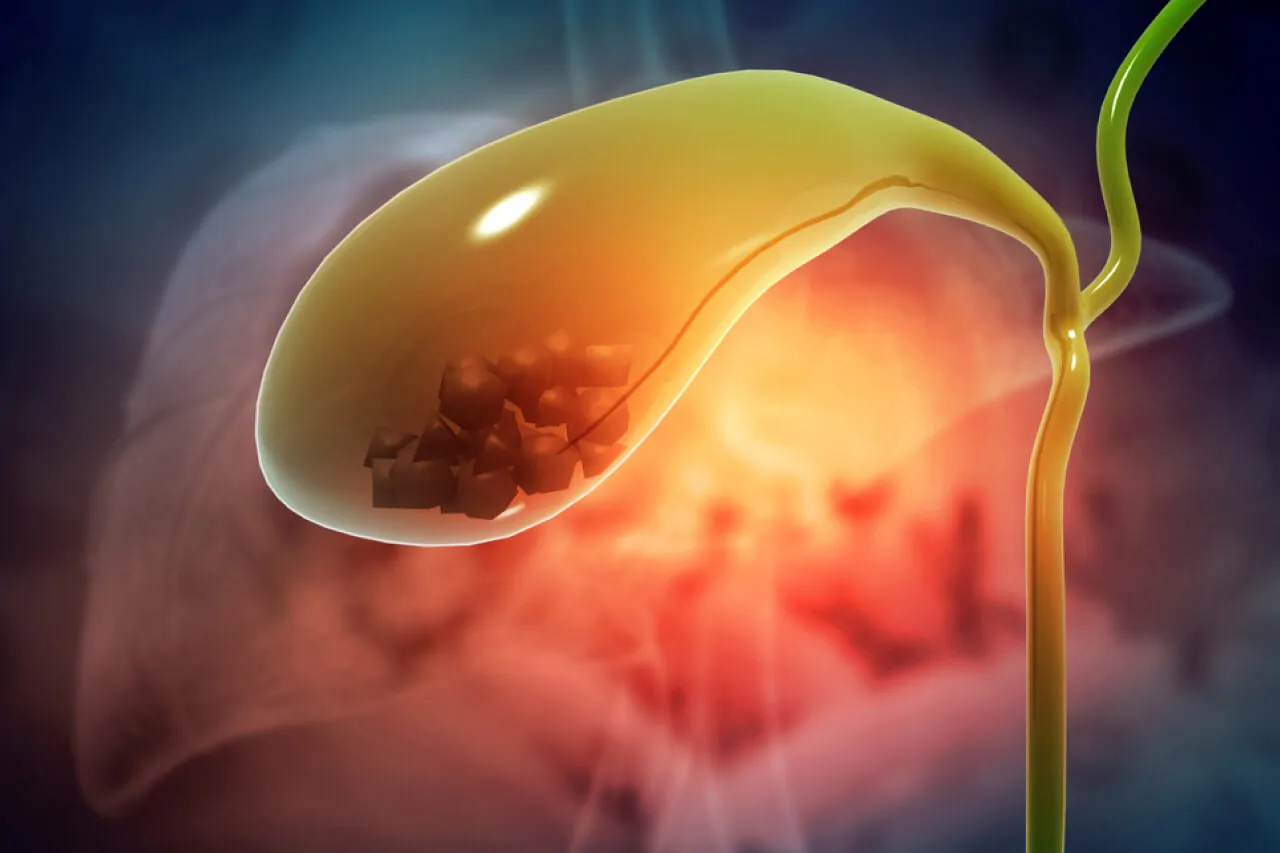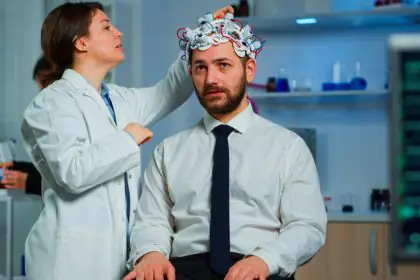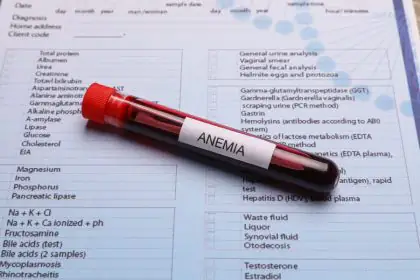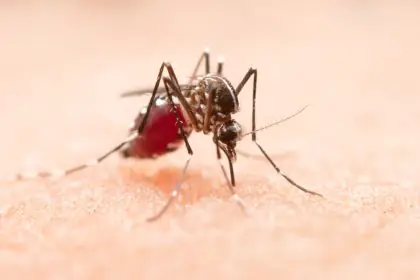Gallbladder pain refers to the pain that occurs when there is a problem with the gallbladder, a small organ located beneath the liver.
The most common cause of gallbladder pain is gallstones, which are hard deposits that form in the gallbladder.
Other causes of gallbladder pain may include inflammation (cholecystitis), infections, tumors, or blockages in the bile ducts.
Symptoms
The symptoms of gallbladder pain can vary from person to person, but common symptoms may include:
- Severe abdominal pain: The pain is often located in the upper right or middle of the abdomen and can range from mild to intense. It may be constant or episodic, and can last from a few minutes to several hours.
- Pain after eating: Gallbladder pain is often triggered or exacerbated by eating fatty or greasy foods. It may also occur after consuming a large meal or eating too quickly.
- Pain radiating to the back or right shoulder: The pain may spread from the abdomen to the back or right shoulder blade.
- Nausea and vomiting: Many people with gallbladder pain experience nausea and may occasionally vomit.
- Gas and bloating: Some individuals may also experience excessive gas, bloating, or indigestion.
- Fever and chills: If the gallbladder is infected, fever and chills may be present.
- Jaundice: In rare cases, a blockage in the bile ducts may lead to yellowing of the skin and eyes (jaundice).
It’s worth noting that the intensity and duration of symptoms can vary. Some people may have mild, intermittent pain, while others may experience severe, persistent pain.
Gallstone
Gallstones are solid deposits that form in the gallbladder.
They are usually composed of hardened cholesterol or bilirubin, a pigment produced when red blood cells are broken down.
Gallstones can range in size from tiny grains to as large as a golf ball.
There are two main types of gallstones:
Cholesterol stones
These are the most common type of gallstones and are primarily made from cholesterol.
They form when there is an imbalance in the bile composition, leading to the precipitation of cholesterol particles.
Pigment stones
These stones are typically smaller and darker in color.
They are made up of bilirubin and form when there is an excess of bilirubin in the bile.
Gallstones can vary in number, with some individuals having multiple stones in their gallbladder.
Sometimes, gallstones may remain in the gallbladder without causing any symptoms or complications.
However, when gallstones block the bile ducts or cause irritation to the gallbladder, it can result in gallbladder pain, inflammation (cholecystitis), or other complications.
Symptoms of Gallstone
The symptoms of gallstones can vary, and some people may not experience any symptoms at all. However, when symptoms do occur, they can include:
Gallbladder pain
This is the most common symptom of gallstones. The pain typically occurs in the upper abdomen and can be described as a sharp, cramp-like pain. The pain may come and go, and it can be triggered by eating fatty or greasy foods.
Nausea and vomiting
Many people with gallstones may experience nausea and occasional vomiting.
Indigestion and bloating
Gallstones can disrupt the normal digestive process, leading to indigestion, gas, and bloating.
Jaundice
In cases where gallstones block the bile duct, a yellowing of the skin and eyes (jaundice) can occur. This happens due to the buildup of bilirubin, a waste product that is usually eliminated through bile.
Fever and chills
If the gallbladder becomes infected or inflamed due to a blockage, fever and chills may develop.
Back or shoulder pain
Gallstone pain can radiate from the abdomen to the back or right shoulder blade.
It’s important to note that these symptoms can also be caused by other conditions
It’s essential to consult a healthcare professional for an accurate diagnosis if you suspect you may have gallstones.
Moreover, some people may have gallstones without experiencing any symptoms, a condition known as “silent gallstones.”
In such cases, treatment may not be necessary unless symptoms develop or complications arise.
The treatment for gallstones may depend on the severity of symptoms and potential complications.
Options can range from lifestyle changes and medications to prevent the formation of new stones, to surgical removal of the gallbladder (cholecystectomy) if necessary.
Natural Remedies for prevention
While natural remedies may help alleviate symptoms of gallbladder pain and potentially support gallstone prevention, it is crucial to consult with a healthcare professional for proper evaluation and guidance. Here are some natural remedies that might be beneficial:
Dietary modifications
Consume a diet that is low in unhealthy fats and high in fiber. Increase your intake of fresh fruits, vegetables, whole grains, and lean proteins. Avoid or limit fried, fatty, and processed foods, as they can trigger gallbladder pain and contribute to gallstone formation.
Herbal supplements
Some herbs, such as milk thistle, dandelion, and turmeric, have been traditionally used to support gallbladder health.
However, it’s important to remember that herbal remedies can have interactions with medications or may not be suitable for everyone. Consult with a healthcare professional before using any herbal supplements.
Stay hydrated
Proper hydration is important for maintaining healthy bile flow.
Drink an adequate amount of water throughout the day to help prevent gallstone formation.
Maintain a healthy weight
As mentioned earlier, obesity is a risk factor for gallstones.
Aim to maintain a healthy weight through a balanced diet and regular exercise.
Physical activity
Engage in regular physical activity, as it may help facilitate digestion and promote overall gallbladder health.
Limit alcohol and caffeine
Excessive consumption of alcohol and caffeine can increase the risk of gallstones.
Moderation is key, and it may be advisable to limit or avoid these substances.
Stress management
Chronic stress can negatively impact the digestive system and increase the risk of gallstones.
Incorporate stress-management techniques such as meditation, deep breathing exercises, or engaging in activities you enjoy to reduce stress levels.
Conclusion
Gallbladder pain and gallstones are related conditions that can cause significant discomfort and affect the digestive system.
Gallbladder pain is commonly caused by gallstones, which are solid deposits that form in the gallbladder.
The symptoms of gallbladder pain can include severe abdominal pain, nausea, vomiting, and fever.
Gallstones can be prevented or managed through various measures such as maintaining a healthy weight, eating a balanced diet low in unhealthy fats, staying hydrated, engaging in regular exercise, and avoiding excessive alcohol and caffeine.
While natural remedies may help alleviate symptoms and potentially support gallstone prevention, it is crucial to consult with a healthcare professional for proper evaluation and guidance.
If symptoms persist or worsen, medical intervention may be necessary, and surgical removal of the gallbladder (cholecystectomy) may be recommended.
Remember, individual cases can vary, so it’s essential to seek professional medical advice for personalized diagnosis and treatment.
FAQs
What causes gallbladder pain?
Gallbladder pain is primarily caused by gallstones, which are solid deposits that form in the gallbladder. Other causes may include inflammation, infection, or blockages in the bile ducts.
What are the symptoms of gallbladder pain?
Symptoms of gallbladder pain can include severe abdominal pain, nausea, vomiting, indigestion, bloating, back or shoulder pain, and, in some cases, jaundice and fever.
How can I prevent gallstones?
To reduce the risk of gallstones, maintain a healthy weight, eat a balanced diet low in unhealthy fats, stay hydrated, engage in regular exercise, limit alcohol and caffeine, and manage stress levels.
Can natural remedies help with gallbladder pain and gallstone prevention?
Natural remedies such as dietary modifications, herbal supplements, staying hydrated, maintaining a healthy weight, physical activity, and stress management may alleviate symptoms and support gallstone prevention. However, consult with a healthcare professional for personalized guidance.
When should I seek medical help for gallbladder pain?
It is recommended to seek medical help if you experience severe and persistent abdominal pain, jaundice, fever, or symptoms that disrupt your daily life. A healthcare professional can provide a proper diagnosis and recommend appropriate treatment options.





